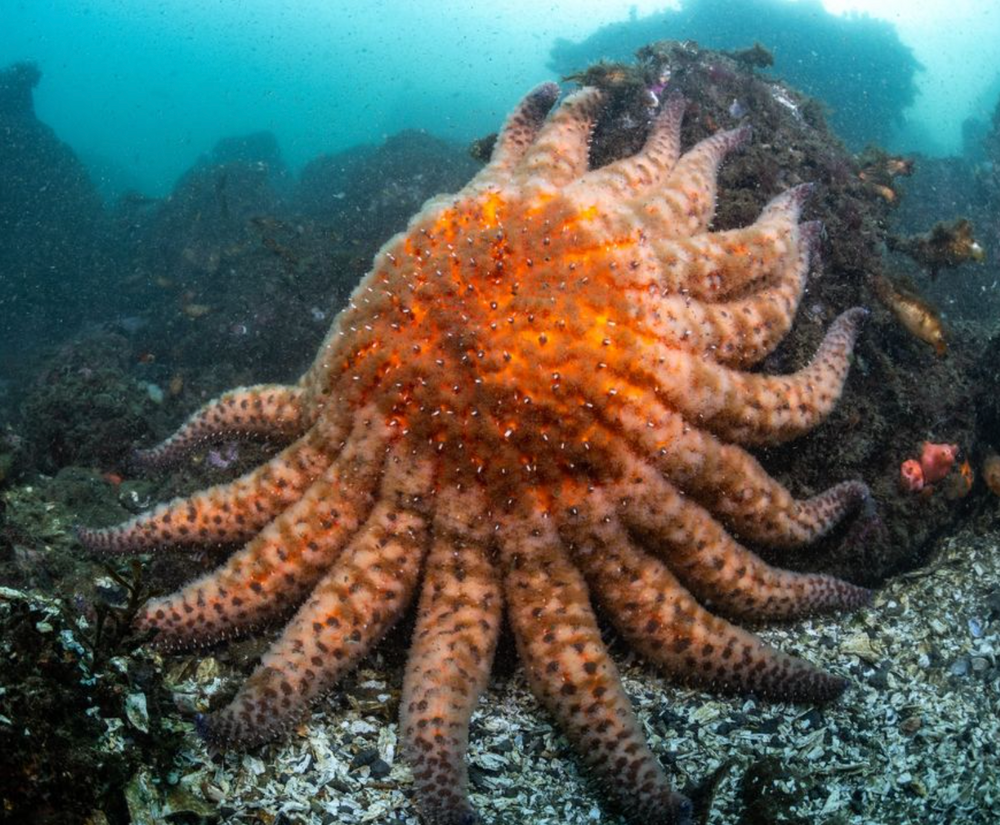
Sea Star Wasting Syndrome
In 2013, sea star wasting syndrome (SSWS) devastated sea star populations along the west coast of North America. The sunflower star (Pycnopodia helianthoides), once abundant from Alaska to Baja California, was among the hardest hit—becoming locally extinct in shallow coastal waters. As a keystone predator, sunflower stars play a vital role in regulating sea urchin populations and maintaining healthy kelp forests. Without them, urchin populations exploded, leading to widespread kelp forest decline.
To help restore this balance, Seatrees has partnered with the Sunflower Star Laboratory who has been developing aquaculture protocols and coordinating captive breeding for sunflower stars. The long-term goal is to establish sustainable aquaculture and reintroduce these critical predators to the wild, supporting the recovery and resilience of kelp forest ecosystems.
Restoring Sunflower Stars to Save California's Kelp
For more than a century, California's kelp forests have been steadily declining, a trend exacerbated by the disappearance of sunflower stars from our coastal ecosystems in 2013/14. Southern California has lost over half of its kelp cover in the last century, while Northern California has lost over 96% of its kelp cover in the last decade. There is an urgent need to restore ecosystem function to our kelp forest environments by keeping urchin grazing in check through the predation effects of sunflower stars.
Over the past few years, Sunflower Star Laboratory (SSL) has dedicated its efforts to enhancing sustainable conservation aquaculture techniques for echinoderm species. Their focus includes coordinating captive breeding initiatives for Pycnopodia helianthoides, commonly known as Sunflower Stars, aiming for sustainable sunflower star aquaculture.
SeaTrees has partnered with SSL to assist in long-term sustainable sunflower star aquaculture and research into their recovery to aid kelp forest restoration efforts. With your support, we are able to fund most of the laboratory operating costs during a year of rapid organizational development, enabling Sunflower Star Laboratory to settle and grow pycnopodia and other local echinoderms.

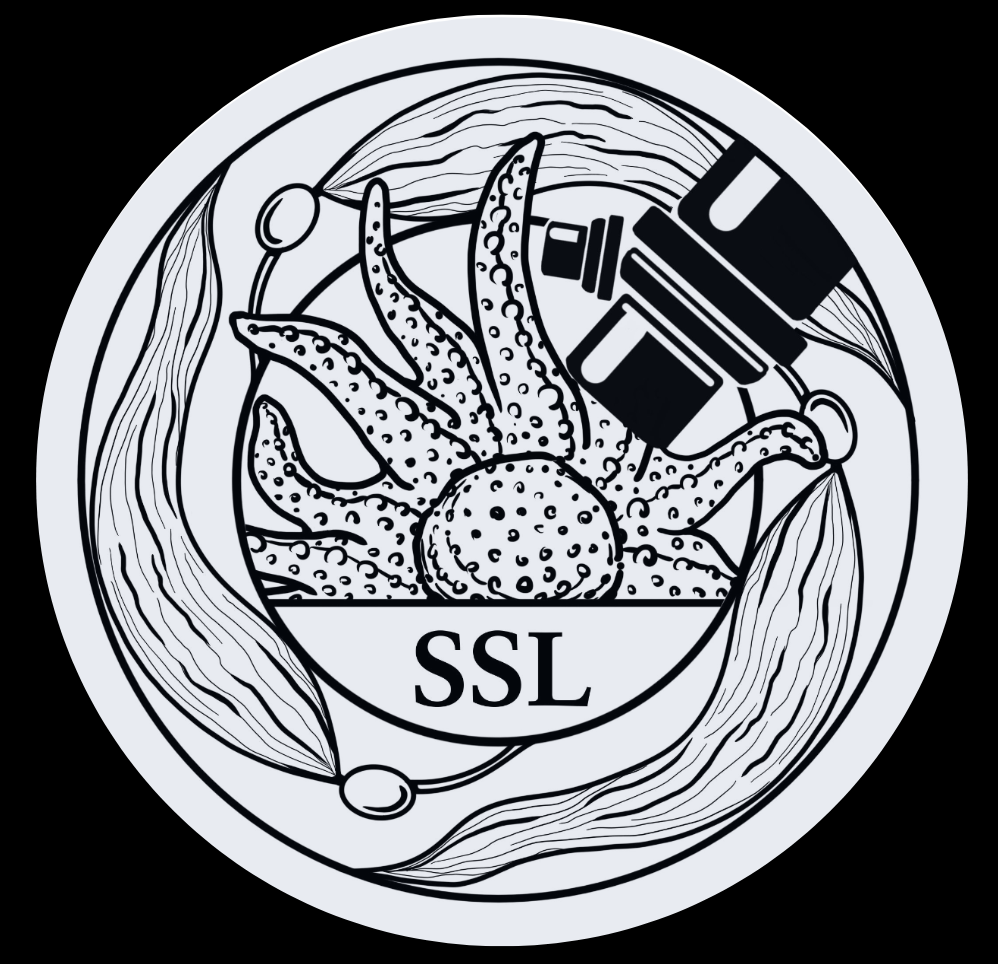
Sunflower Star Laboratory
Sunflower Star Laboratory is a Monterey-based non-profit committed to researching and developing reliable and scalable sustainable conservation aquaculture methods for sunflower star (Pycnopodia helianthoides) conservation and reintroduction.
Their mission is to protect the diversity of coastal ecosystems by supporting research and developing scalable sustainable conservation aquaculture methods to restore sunflower stars to their historic range in California.
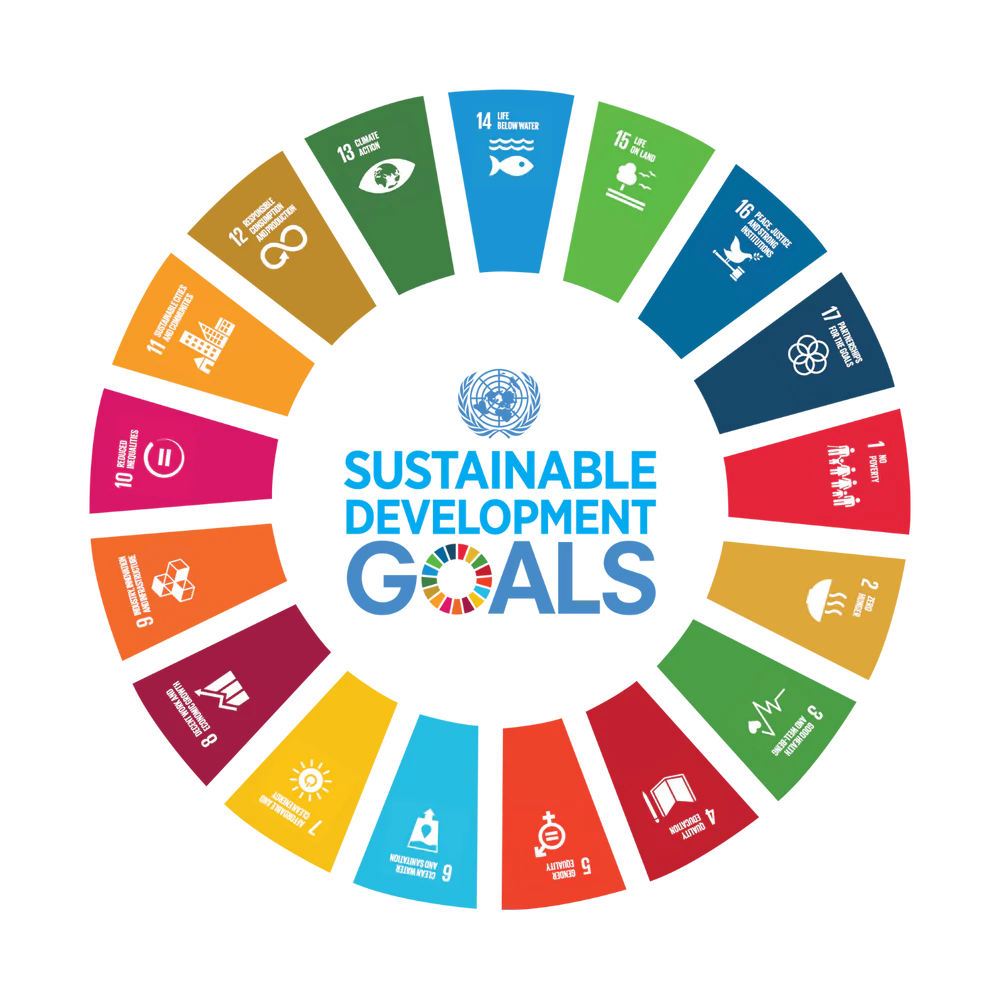
Sustainable Development at Moss Landing
Seatrees supports the kelp forest restoration and research efforts by the Sunflower Star Laboratory by funding core lab operations, enabling long-term sunflower star aquaculture, recovery research, and the cultivation of Pycnopodia and other local echinoderms.
Key Impact Metrics
- 96% kelp loss in Northern California over the past decade underscores urgent need for restoration.
- Sunflower stars (a keystone predator soon to be listed as threatened) are being bred in captivity to restore urchin control and kelp forest balance.
- Community benefits include local jobs, training, workshops, and educational tours, with ~50/50 gender representation.
- Biodiversity impact: healthy kelp forests support 1,000+ species and strengthen coastal ecosystems.
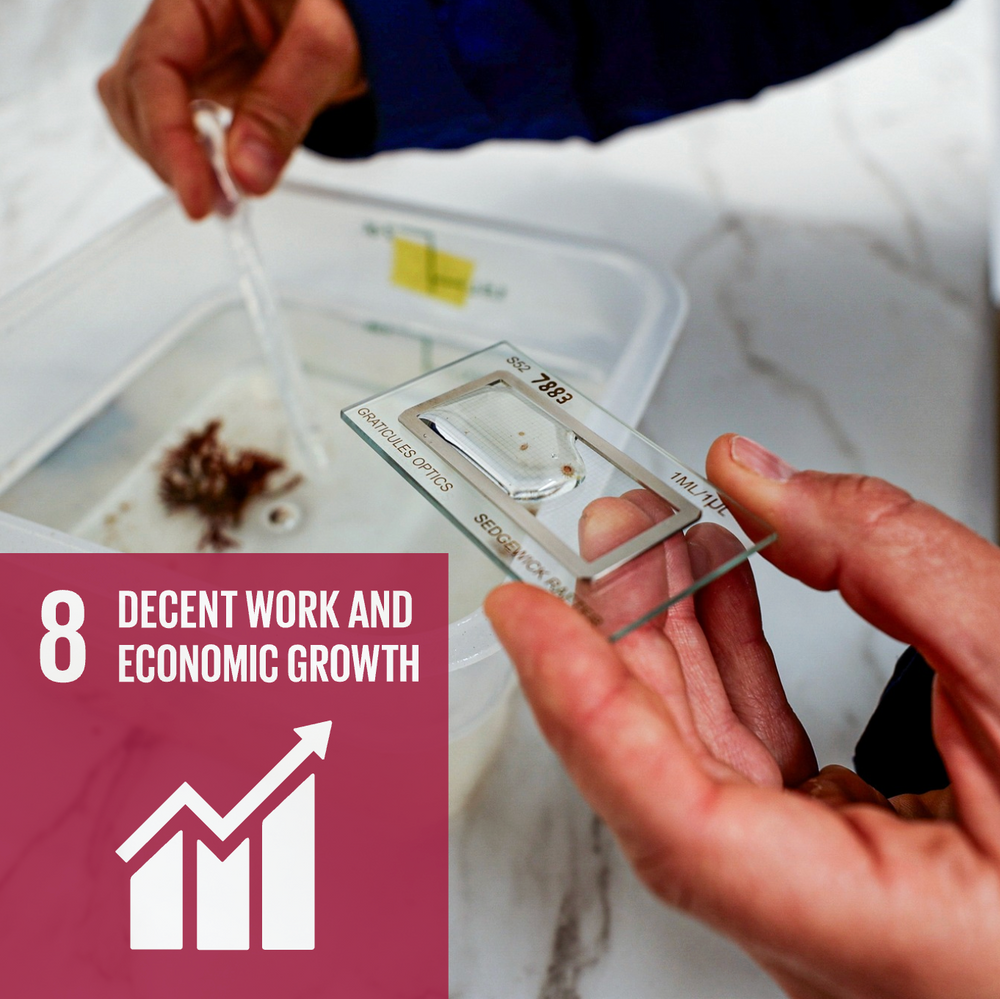
Decent Work and Economic Growth
Kelp forest restoration helps support local ecotourism and fishing communities.
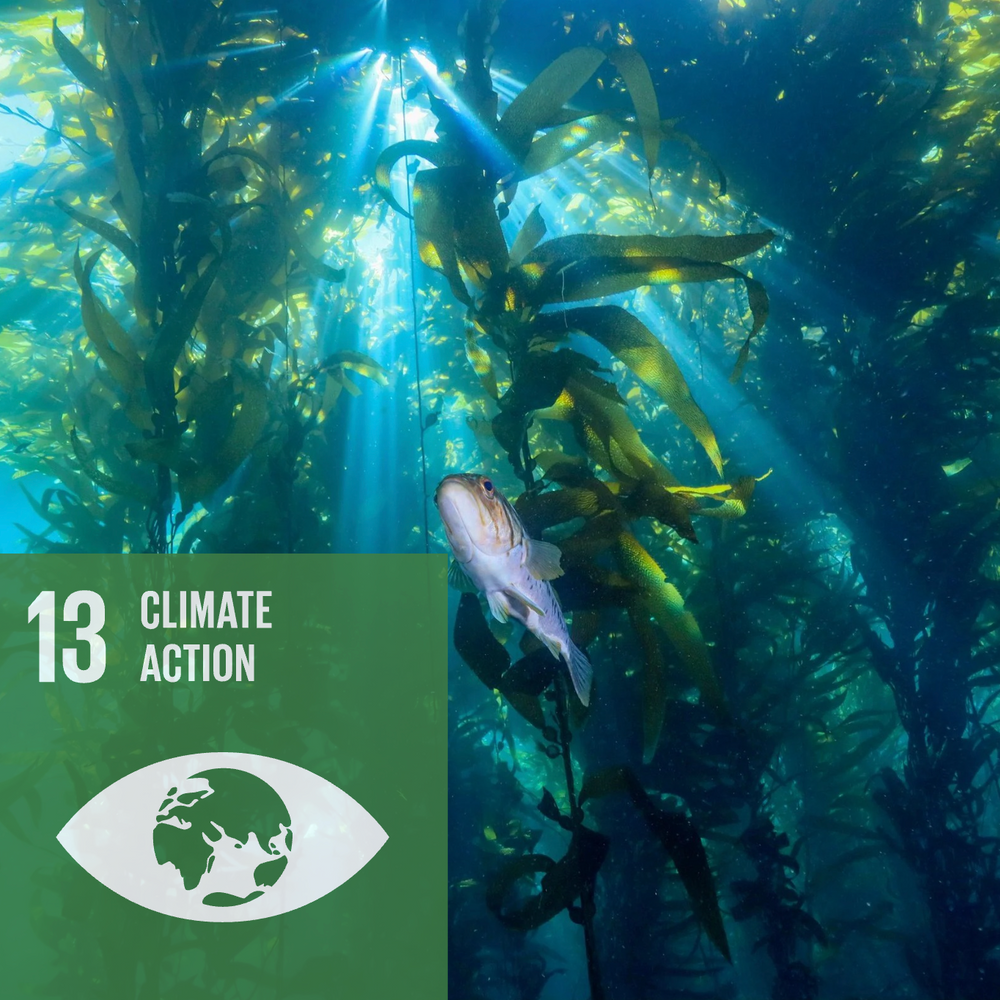
Climate Action
Macroalgae such as kelp sequester large amount of carbon.
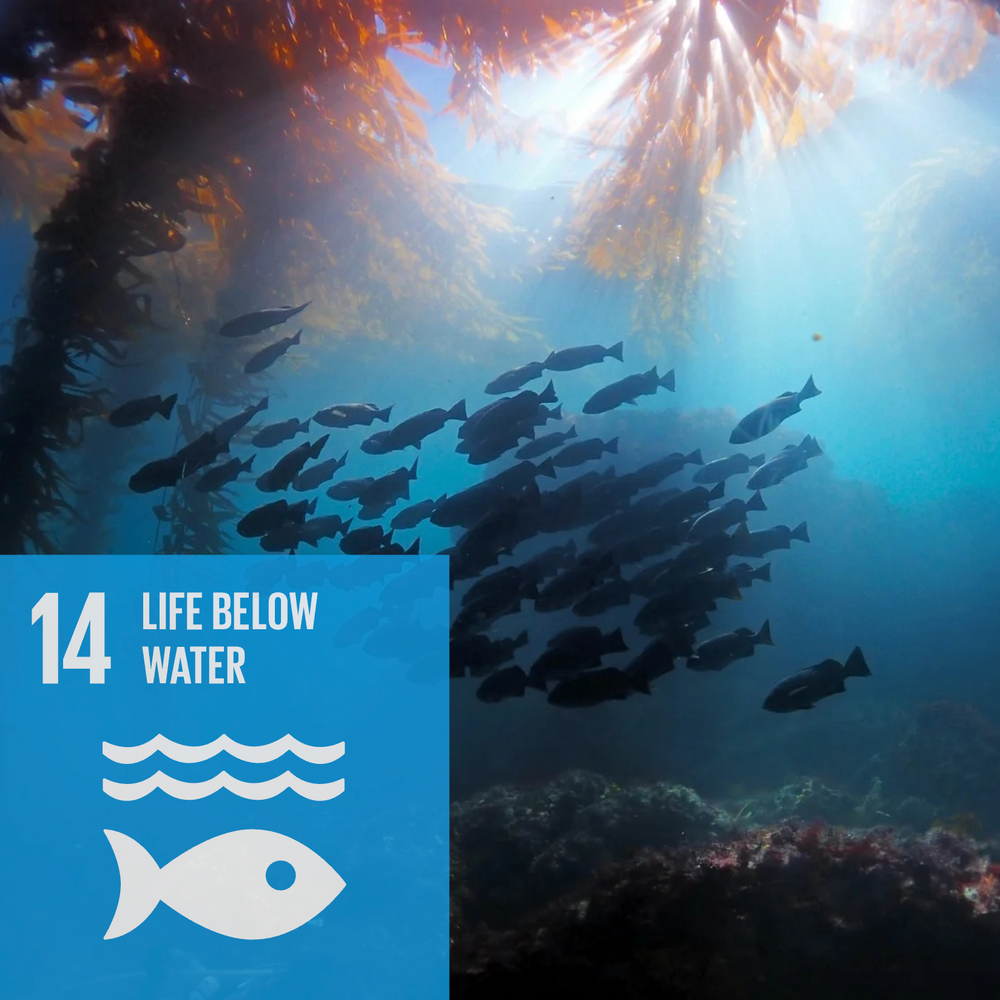
Lief Below Water
Kelp forests are biodiversity hotspots that sustain 1000+ organisms.

